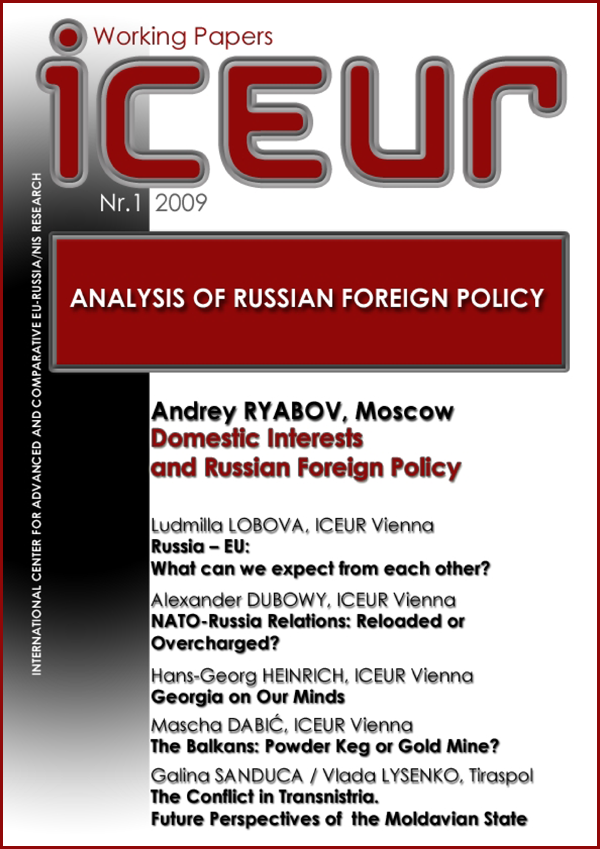ICEUR was founded by a Vienna-based group of concerned citizens from the academic, international and political communities, who are aware of the stalemate in the EU-Russian relationship and pledge creative new approaches in research and policy consulting. Following an interdisciplinary and multidimensional approach, the ICEUR explores the complex relations between the EU and Russia/NIS in close cooperation with renowned Russian experts. Scope for improvement is identified and profound analyses are provided to relevant experts and to the interested general public.
In June 2009, ICEUR presented the first Working Paper: “Background, Shaping Factors and Orientations of Russian Foreign Policy- Inside Views.” The Working Papers are meant to provide a forum for experts from Europe, Russia and the Newly Independent States to comment on current topics.
The main part of the first Working Paper is an analysis of the Russian foreign policy, written by Andrey Ryabov, scholar-in-residence at the Carnegie Endowment Center for International Peace in Moscow. Ryabov discusses the relationship between the domestic interests of the Russian elites and foreign policy, a relationship that is arguably not always comprehensible for the West. Ryabov also touches upon the origins of today’s elites in Russia, by exploring the situation in the nineties that brought about a complex amongst the elites of feeling offended and limited at the same time, and a fixation on the status of the “lonely state” which walks along its own path. Ryabov argues that conflicts of interest amongst various Russian elite groups make Euro-Russian relations ambiguous, oscillating between collision course and consensus-oriented approaches. Shorter articles written by the members of the ICEUR team complement Ryabov’s analysis and discuss other aspects of the Russian foreign policy, such as EU-Russia relations, NATO-Russia relations, implications of the war in Georgia and Russian policy on the Balkans. Two experts from Moldavia analyse the role of Russia in the Transnistrian conflict. The foreword was provided by Johannes Hahn, the Austrian Federal Minister of Science and Research. Mr. Hahn stresses the importance of international scientific cooperation, which is a field to which the ICEUR can make a substantial contribution
